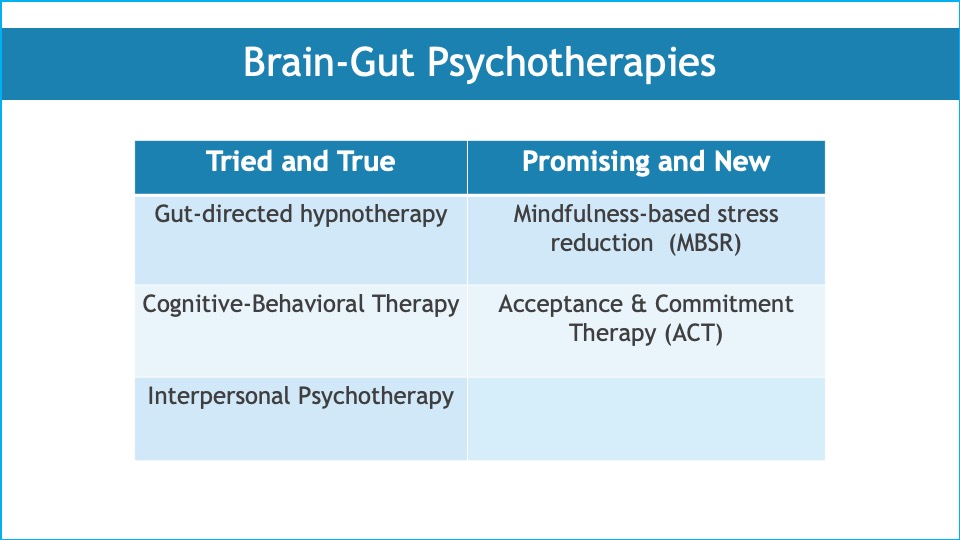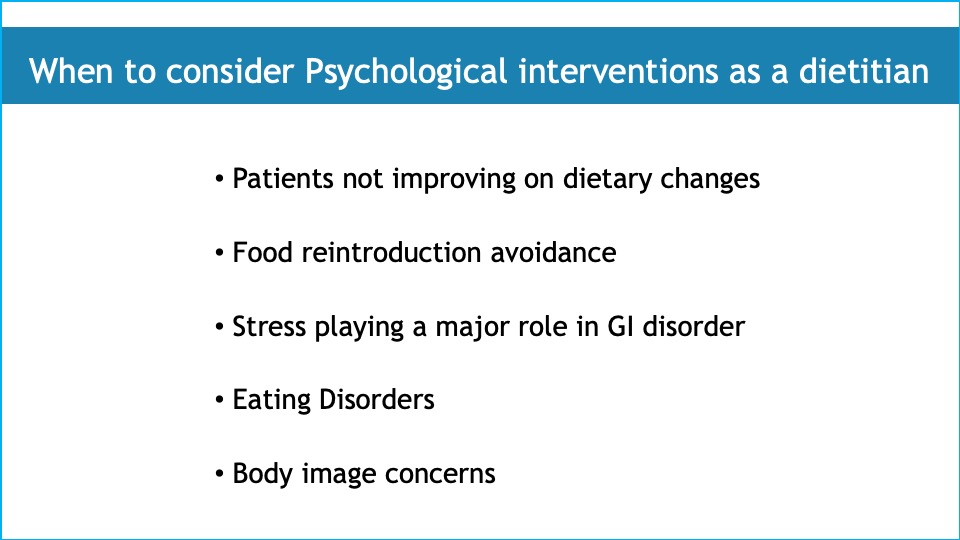Psychogastroenterology. Dr Jim Kantidakis, Gut-directed Psychologist & Clinical Hypnotherapist
Jim Kantidakis was the first psychologist in Australia to specialise in the Psychological /Hypnotherapy treatment of individuals diagnosed with gastrointestinal problems.
Why should we consider a psychological approach to a condition which is considered to be physical like the gut? Jim explains the brain and gut develop in the same area of embryonic tissue and as the embryo grows, they diverge. The brain and gut remain linked by the vagus nerve and that communication is bidirectional. What happens in our head affects our gut, and what happens in our gut affects our mind and our thinking.
Neuroimaging studies show that people with IBS have ineffective pain modulation and central pain amplification which means their brains over-amplify the signals they receive from the gut and this results in pain, distress and anxiety. This is explained in part by corticotropin releasing factor which increases the sensitivity of the gut, the permeability of the gut and delays gastric emptying.
For those of us who work with people with IBS, it probably unsurprising to learn that 50% of this population have a comorbid psychological disorder, commonly anxiety, as well as higher rates childhood trauma and physical or sexual abuse.
Jim describes three gut-brain psychotherapies, how they are applied and how effective they have shown to be.
1. Gut-directed hypnotherapy
This uses targeted verbal suggestions and therapeutic imagery to encourage improvement in symptoms i.e reduce pain perception/attention/& reduce visceral hypersensitivity
2. Cognitive behavioural therapy
This therapy challenges negative or distorted thoughts using:
- Exposure/behavioral interventions
- Problem Solving/pain tolerance
- Relaxation
3. Mindfulness-based stress reduction
- MBT is based on the assumption that attempts to control thoughts, emotions, memories, and bodily states are unsuccessful and come with significant costs.
- Controlling efforts are futile and frequently increase internal suffering
- This process involves paying attention to the present moment with an attitude of interest and nonjudgmental acceptance (mindfulness)
He outlines when it would be appropriate to consider referring our clients for psychological therapy.


Jim Kantidakis is a Clinical Psychologist & Hypnotherapist, and the first Psychologist in Australia to specialise in this Psychological /Hypnotherapy treatment of individuals diagnosed with gastrointestinal problems.
Jim’s passion and keen interest in gastroenterology have inspired him to develop and train his own team of expert Psychologists/Hypnotherapists in his practice, ’The Gut Centre’.
Jim is also currently involved in St. Vincent’s Hospital (Melbourne) Functional Gut Clinic as the Clinical Psychologist and gut-directed Hypnotherapist on staff.
Jim has strong links with world leading Gastroenterologists in Australia and the United States and has recently returned from the US where he visited GI clinics across six states exploring the latest developments in Psychogastroenterology research and practice.
Jim also has a podcast called “Talking Gut with Dr Jim Kantidakis” where he interviews a whole range of expert health professionals who work in the area of gastroenterology.
To register for the presentation and associated documents including the assessment quiz click here